
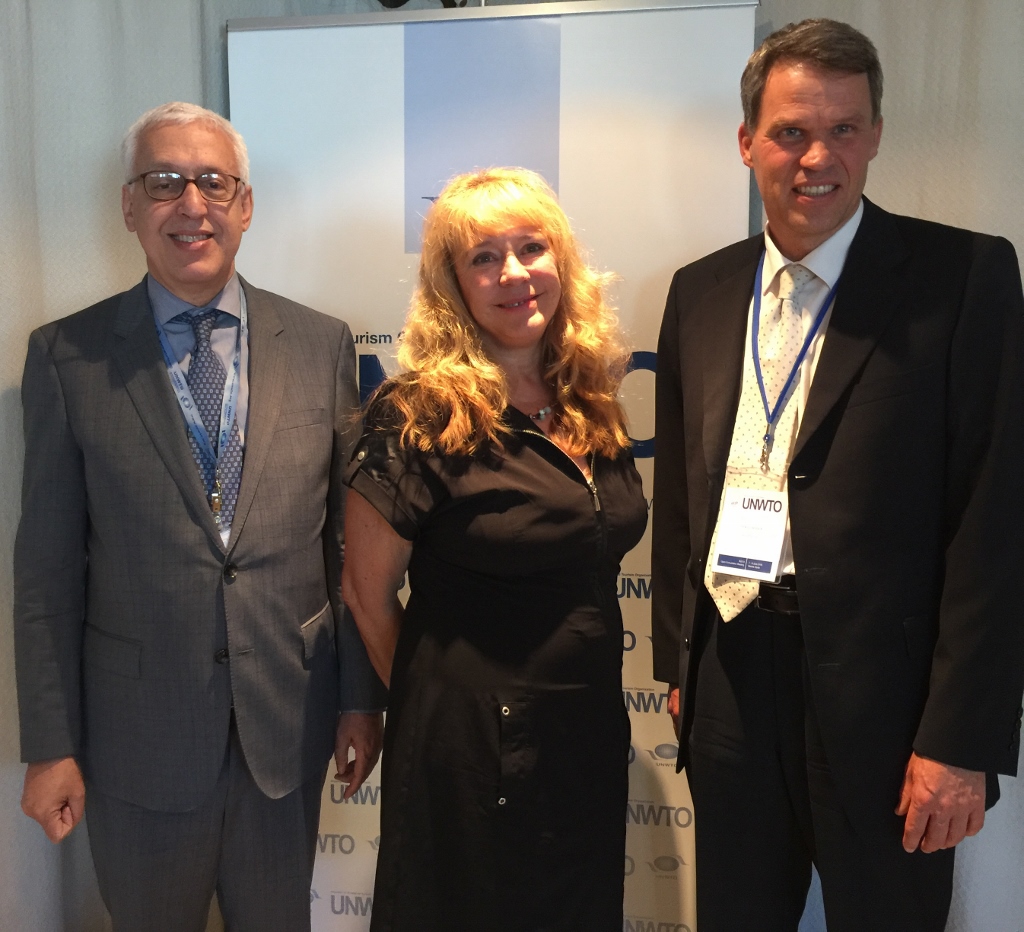
Symposium on UNWTO Sustainable Tourism Observatories nets new knowledge
With this Open Consultation Meeting, UNWTO sought to engage, share and discuss views, experiences and opportunities in measuring, monitoring and assessing tourism impacts at the destination level in preparation of the 2017 International Year of Sustainable Tourism for Development and to advance the agenda of sustainable and resilient tourism development.
Opening with a dynamic keynote by Executive Director Dr. Marcio Favilla who focused on new initiatives utilizing new means of data collection and analyses. Dr. Xu Honggang led the “Experiences from the Observatories” session sharing the wealth of experience which the team from Sun Yat-Sen University in China collected when they developed the first and to this day largest network of tourism observatories with UNWTO.
Other speakers included Rosa Ruvalcaba Benitez and Claudia Betancourt, associated with Guanajuato Tourism Observatory which has had great success in involving local stakeholders including 25 local organizations in the data gathering processes.
Michael Dodds, who directs the Regional Tourism Committee of Brittany France – an area which has done a brilliant job of attaining strong brand recognition discussed exploiting their niche markets such as sailing and cycling, both of which are notably limited carbon activities.
Roger Lang CEO of Predicta Cognitive Commerce Cloud beamed in to discuss how Silicon Valley ingenuity and UNWTO can accelerate the growth of sustainable travel.
The Symposium segued into discussions of the progress on indicators and measurement… initiatives and instruments, presentations on embracing big data, monitoring visitor satisfaction for effective destination strategies, analyzing mobile device info, each point presented by thought leaders from companies such as Amadeus and ReviewPro.
The conference concluded June 8 with an analysis of three aspects of Sustainable Travel: the Economic dimension, the Socio/Cultural dimension (an area several of the new Observatories being developed are planning to focus on including the recently formed Coalition to Observe and Advance Sustainable Tourism in Sonoma, California) and the Environmental aspect chaired by Dr. Ted Manning president of Tourisk,inc who brought a breadth of experience from his background consulting in destinations worldwide.
The host of the conference, Dr. Dirk Glaesser, director of the Sustainable Development Programme, closed saying that the goal is to “make Observatories around the world an absolutely normal thing”.
PAMELA LANIER
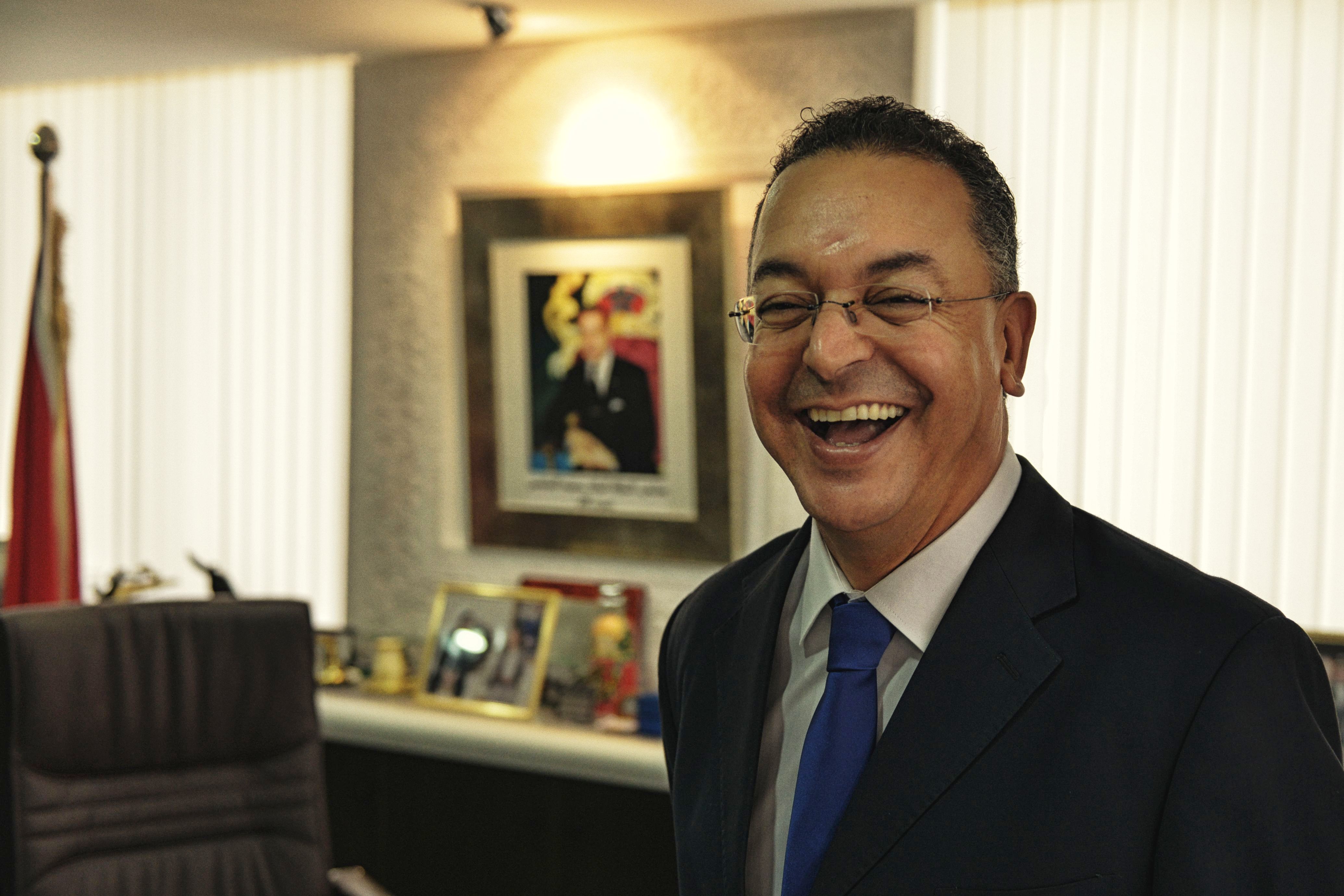
Morocco’s Minister of Tourism named Travel Personality of the Year
At a ceremony in Dubai attended by travel and tourism industry professionals and representatives from the local Arab community as well as the international media, Morocco’s Minister of Tourism, Mr. Lahcen Haddad, was named the 2015 “Tourism Personality of the Year.”
The minister received the award from the Arab Center for Tourist Media as part of the 8th edition of tourist trophies awarded annually by the center since 2008.
During the ceremony, Mr. Hussein, President of the Arab Center for Tourist Media, said that the consecration of Mr. Haddad is “to honor the minister in recognition of his experience and his efforts for the development of Arabic and local tourism.” He also explained that the objective of these awards is to “support and encourage the efforts and achievements to develop this sector in the Arab countries, and to boost tourist flows in Arab countries, and encourage the use of quality of services.
In his address, Mr. Haddad recalled the place and positioning of Morocco as a destination in the world tourism sphere. “This place embodies the maturity of the Moroccan destination and reaffirms its relevance.”
Mr. Haddad was reassured about the future of world tourism, adding that the tourism industry remains important, especially as the trip culture is increasingly rooted in travel habits. He said that tourism is a major factor of global economic change which is evolving more towards the services entertainment industry. Mr. Haddad added that the challenge for the coming years is to mobilize policymakers to focus on the innovations of the tourism trade.
The selection committee from the Arab Center for Tourist Media announced that the awarding of the prize of “Tourism Personality of the Year” going to Mr. Lahcen Haddad, was the result of him receiving a score of 4,569 votes. The mode of voting for this edition was done by electronic vote with the participation of 122 AEs listed in 23 categories representing 18 Arab countries.
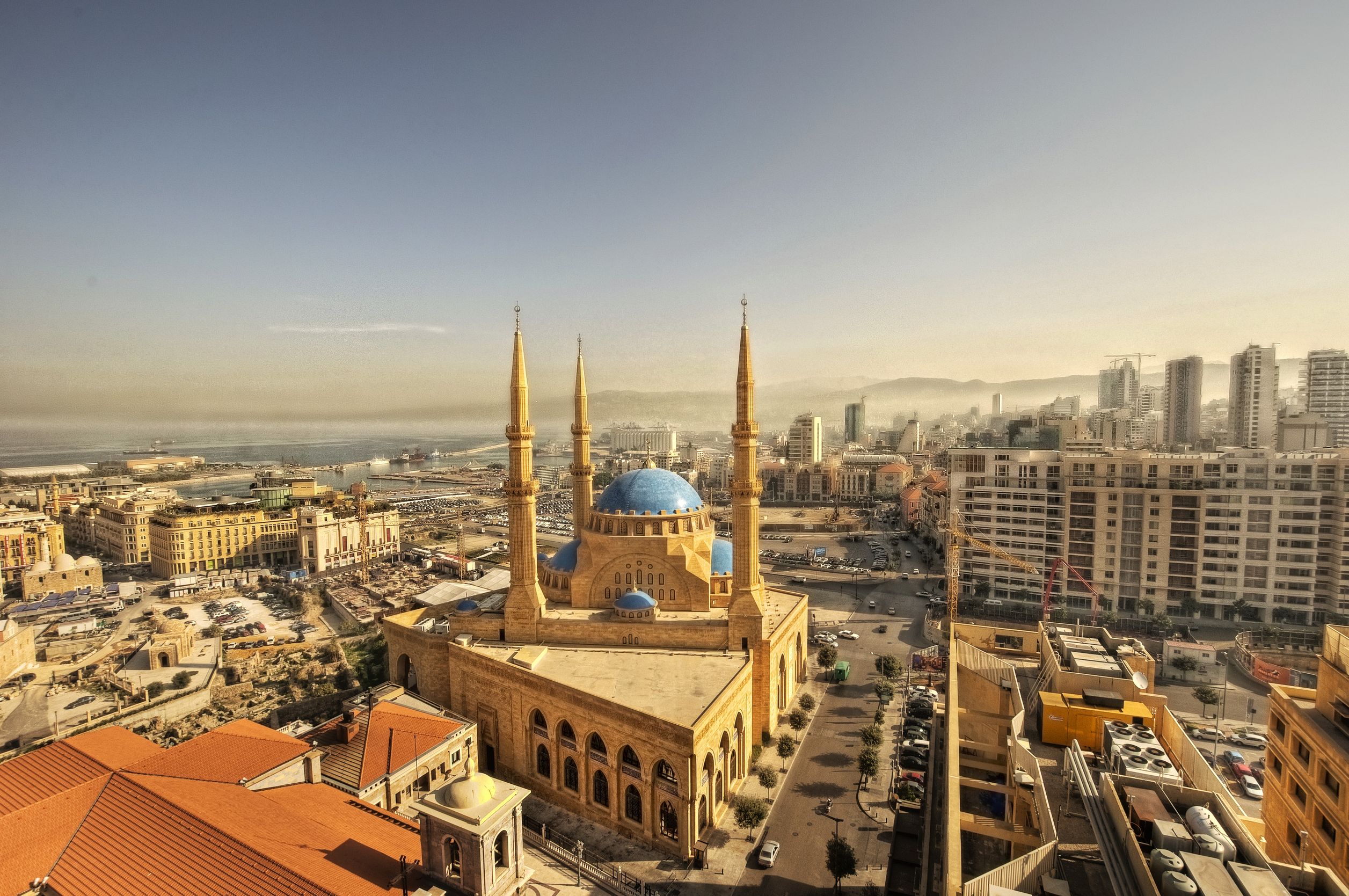
Tourism’s capacity to connect cultures discussed in Lebanon
The increasing relevance of religious and cultural tourism and the opportunities it offers to link the countries in the Mediterranean was the focus of a series of events on ‘Connecting People and Cultures through Tourism in the Mediterranean region.’ The events held in Maghdouche and Beirut, were organized by UNWTO and the Ministry of Tourism of Lebanon.
The first event – a round table on religious tourism, with the participation of CNN’s John Defterious – explored the challenges and opportunities for the development of religious tourism routes in the Levant as well as cross-country pilgrimages and networks of religious tourism destinations as effective means to foster regional development and integration, cross-cultural exchanges, understanding and self-education and learning.
“Never before have so many people visited so many places and seen so many diverse cultures, traditions and faiths. Religious tourism can in fact be one of the most effective tools to foster mutual understanding and sustainable development” said UNWTO Secretary-General, Taleb Rifai opening the roundtable.
The meeting, held in Maghdouche, was followed by a ceremony organized by the Lebanese Ministry of Tourism marking the launch of ‘our Lady of Mantara’ as a destination for international religious tourism.
The second day was dedicated to the meeting of the Working Group of the Phoenicians´ Route Cultural Tourism Programme.
Michel Pharaon, Minister of Tourism of Lebanon, said “the Phoenician Route has cultural, humanitarian and tourism benefits, for Lebanon and 17 other Mediterranean and European Union countries while fitting UNWTO’s objectives, which has adopted this vital regional project.”
“The Phoenician route is widely recognized not only as a historical cultural and trade-based itinerary, but also as an initiative to interconnect all the diverse backgrounds existing in the region since ancient times. We are upon an unprecedented occasion to revive the identity of the Mediterranean and its tourism sector so that all societies in the region can capitalize the immense opportunities that it brings to 18 participating countries and tourism destinations across more than 2800 kilometers in terms of economic development and job creation,” said Mr. Rifai.
The events counted with the participation of the Ministries of Tourism of Lebanon, Palestine and Egypt and international organizations such as UNESCO and ASCAME. The Council of Europe was represented by Stefano Dominioni, Director of the European Institute of Cultural Routes (EICR) and Executive Secretary of the Enlarged Partial Agreement (EPA) on Cultural Routes of the Council of Europe who expressed the full cooperation of the Council to the development of the Phoenicians´ Route as a cultural tourism programme.
The meeting concluded with the four key areas of focus as next steps: 1) the development of itineraries, 2) involving local communities, 3) joint marketing and promotion, and 4) travel facilitation.
The Phoenicians´ Route Cultural Tourism Programme provides a valuable opportunity to build upon the existing cultural route and facilitate the development of a strategic plan for tourism itineraries, engaging stakeholders in the region and encouraging the alignment of resources and funds for tourism product development, capital projects, visitor experiences, marketing and promotion.
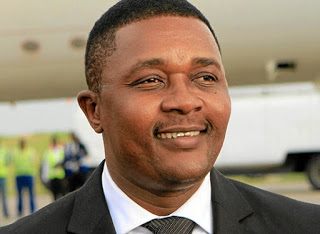
UNWTO Asia Pacific Forum: Feedback from an African Tourism Minister
The 28th United Nations World Tourism Organization joint Commission of South Asia and the Pacific in Nara, Japan concluded.
The minister of tourism from Zimbabwe Hon. Walter Mzembi told eTurboNews about his input. Minister Mzembi is also running to be voted in as the new UNWTO Secretary General at the upcoming 2017 election in China.
He stated: “Made an Africa Look East, Look Everywhere presentation, it was well received.
I Made a case for ZIMBABWE and the role of tourism in the Visit-Trade- Invest value chain , and how the East can leverage on its none historical baggage status to exploit win win partnerships with Africa,
It was already exemplified by FOCAC, Korea Africa Forum, TICAD, Indo Africa Forum, Thailand Africa Forum.
I urged more forums to mitigate African fragmentation born out of Colonialism.
I advocated for tailored funding for Tourism Development, as in the numerous instances it is not prioritized.
Tourism and SECURITY remains a key challenge, but I emphasized the broadening of insecurity to include natural disasters, health, food , which are akin to Africa.
I closed my presentation with an expose on AU Agenda 2063 and its attendant opportunities, that the Africa we want , going forward will bring to the fore many deals.
When the minister was asked by Zimbabwean Tinashe H Kanda why he would travel to Japan for a regional Asia/ Pacific regional conference he had this to respond:
I got an answer for Tinashe H Kanda, in response to a good question, why I travel ?
Zimbabwe is Chairperson for the UNWTO Commission for Africa. There are five others, that include the Americas, Europe, Middle East, South Asia and the Pacific. Regional Commissions convene one statutory meeting a year, to which Chairpersons are invited to chairs their own and attend the other five, in order to improve horizontal communication and enhance the nexus between source markets and destinations. Apart from this it is an opportunity for the country to do its sales pitch to a collective of countries, least cost under one roof usually a minimum of 30, apart from affiliates and associates. We do not have the budget as Zimbabwe to road shows to source markets to secure the business, so we have been creative in identifying events where countries gather in multiples, and all we ever do apart from headline interventions is to market and promote Zimbabwe, which is my brief as the Country’ s Chief Public Relations Officer.
The modus operandi has not changed, all Ministers past , and my successors will inevitably follow the same. The only difference is I amplify my work through communication tools like FB, Twitter, Instagram, etc and this is as it should be. Now an effective promotion of the country starts first with the Messenger, and he has to be appropriately branded, have the passion and must basically be an open cheque book ! I do so much with very little, probably the least in the world, and my colleagues will attest to this: What I am armed with as I discharge my mandate, in the first instance is passion( I love what I do) , and secondly creativity. These two combined with Team Tourism support, has given me unparalleled craft competence, and lots of experience which the world is now wanting to convert for its own use, hence international elective processes I am currently participating in.
I have the financial turnover performance at home to attest to the above, and by Minister of Finance’s own admission several times in the last three years, it is Tourism which is paying the bills, with a projected leading sectoral growth of 4.1% in 2015/6 ahead of Mining, Agriculture and Manufacturing…all this with the least fiscal support , check the Blue Book, I am right at the bottom. I have not complained which is now Zimbabwe’s epidemic disease numero uno, I have understood my role and obligations, summarized in turning adversity into opportunity. Adversity yes, a product of your collective loud mouths as Zimbabweans, many of you desecrating your Country Brand daily, a very toxic internal and international discourse which I must explain at every instance and still lure the world, and tourists.I am often asked the proverbial John 1:46 question ” Nazareth, Can anything good come out Nazareth?”, the answer by Phillip to Nathan was an invitation “Come and See”…
August 2013, I invited the world to ZIMBABWE, 20 th Session UNWTO General Assembly, to ” Come and See”, the rest is history…
Finally, the answer to ZIMBABWE’s woes, today and in the future is gonna be hard work, productivity…and I take comfort in the Lord Jesus himself, when confronted in a similar manner as you have done, he had this to say in defence: “Up to this day my Father is still at work, and so am I”
Nothing amazing about flying , ndidzo tsoka dzebasa rangu, hotels and being in other countries, ndiko kubasa kwangu..
Hatimire, kugona basa lyricist
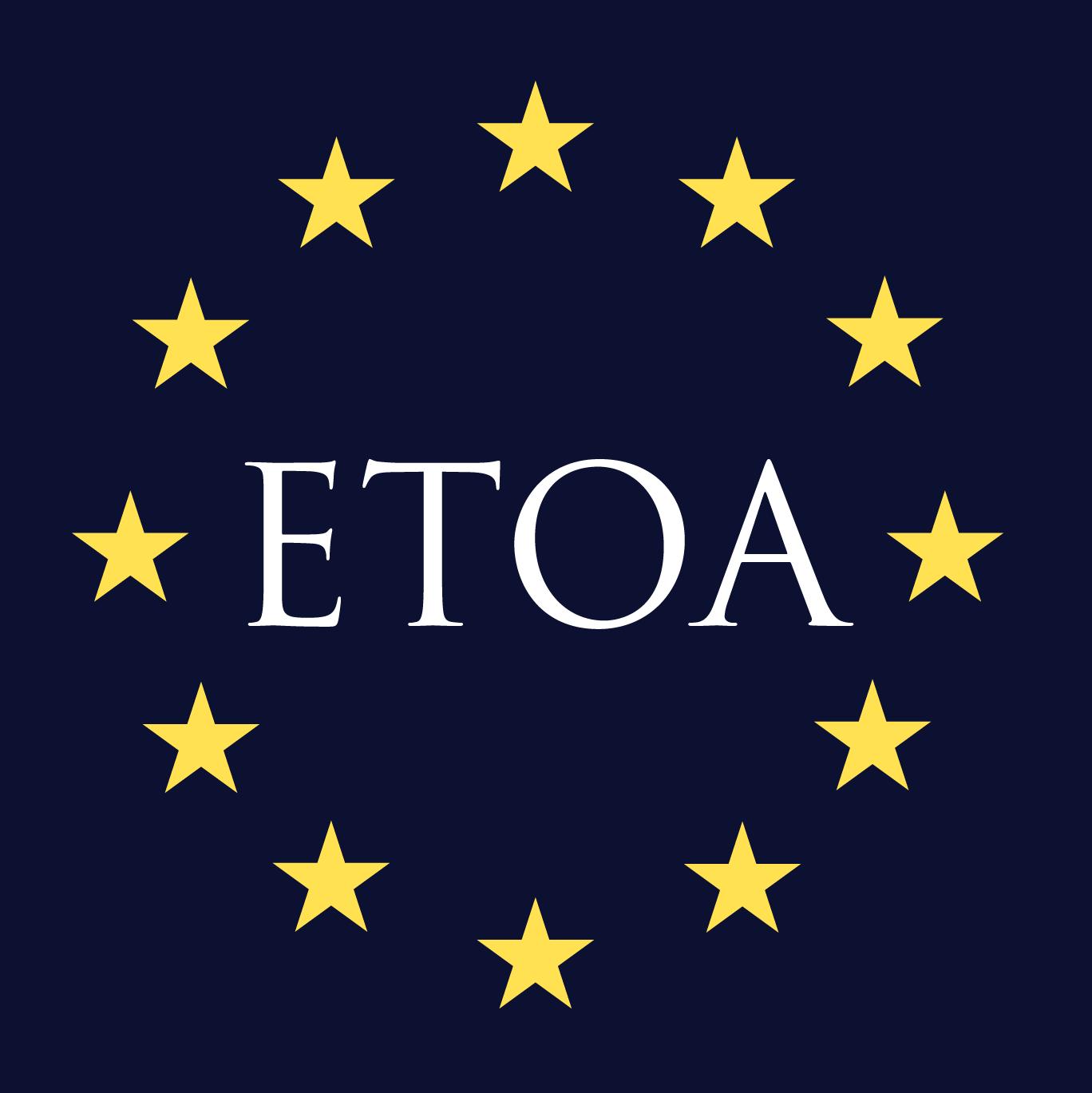
Summer is Coming In – ETOA Reaction to State Department Alert
Much coverage has been given to the US State Department’s issuing of a travel alert for Europe on May 31st.
In it they point out that Europe hosts “major events”, has “tourist sites”, sustains “restaurants”, has “commercial centers” and that there is also transportation. In particular, they note that two large events are occurring (the European Football Championship in France and the World Youth Day in Poland); and that both these events will cause disruption, some of which will be security related.
“The large number of tourists visiting Europe in the summer months” they caution “will present greater targets for terrorists planning attacks in public locations, especially at large events.”
John Kirby of the State Department explained “We took the opportunity, because it’s the beginning of summer, to make our concerns known.”
“I’m not aware of any specific, credible terrorist event around these events or in any particular place in Europe. This was issued … based on an accumulation of information,” he said.
There are several things to note about this release. Firstly, that it is an “Alert”, not a “Warning”. The latter are recommendations not to travel: what we have here is a general airing of unfocussed concern.
Secondly it is effectively a re-issue of the alert that was issued on March 31st after the Brussels attacks. Its recommendations (“Exercise vigilance..avoid crowded places…stay in touch with your family etc”) are the same.
There is no change in status: Europe was the subject of a Travel Alert last month.
Thirdly it recognises that countermeasures are in place, albeit with an alarmist twist: “European authorities continue to take steps to assure public safety and disrupt terrorist plots”.
“What is missing here is any recognition of comparative safety,” said Tom Jenkins of ETOA. “Eighteen of the top twenty safest countries in the OECD list are European1. The homicide rate in Germany is 0.5, France is 0.6 and the UK is 0.2; in the United States it stands at 5.2. Even if the State Department were to switch its gaze from violent death to traffic accidents, it would see that the US is behind on that score too . Europe is manifestly the safest region on earth.”
“It is always puzzling as to the purpose of these announcements. Such assertions would normally require a strong imagination. The declaration that high season tourists “present greater targets for terrorists” is seems purposefully irksome. This identifies a victim group, on the basis of no specific or credible information. Among the 500 million people who live in Europe, it is the tourists who have been picked out as being subjects of terrorism “because it’s the beginning of summer”.
“It has long been recognised that terrorism is a message system, and how we work to counter the mental threat of terrorism is a vital part of the counter-terrorism strategy. The announcements from the State Department seem to be doing the terrorists work for them.”
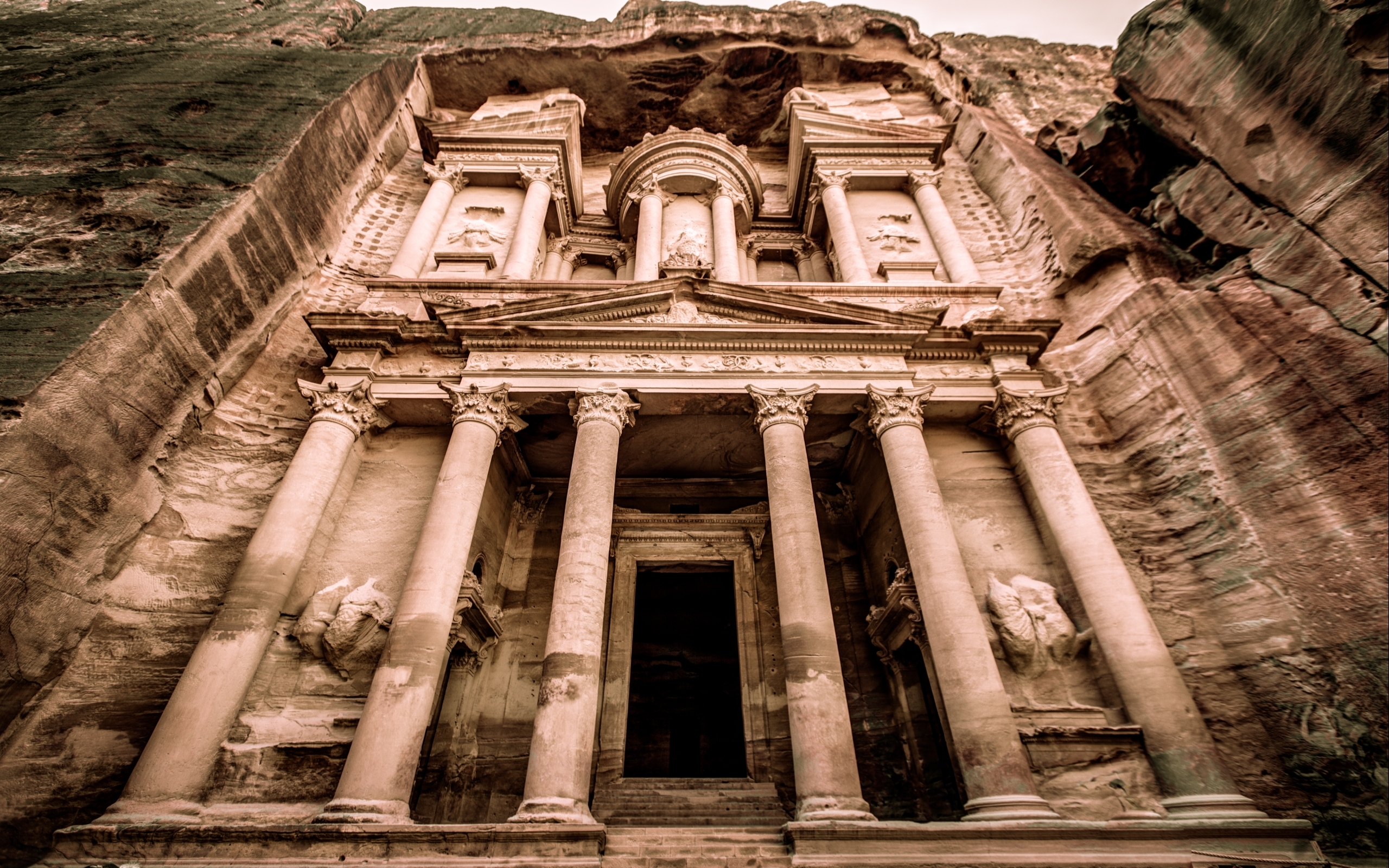
UNWTO and the Petra National Trust partner to promote sustainable tourism
A Memorandum of Understanding (MoU) has been signed by UNWTO and the Petra National Trust (PNT) with the aim to promote sustainable tourism policies in cultural tourism, to develop capacity building and knowledge sharing, and to conduct educational actions. The agreement was signed in Beijing, on the occasion of the recent First World Conference on Tourism for Development.
The MoU was signed by UNWTO Secretary-General, Taleb Rifai, and the President of PNT’s Board, HRH Princess Dana Firas
“The work developed by civil society organizations on the protection of heritage is a fundamental part of the tourism sector, and essential for the design and implementation of sustainable tourism initiatives involving and benefiting local communities. This agreement builds upon this principle,” said Mr. Rifai during the signing ceremony.
“This partnership agreement marks a new milestone for the Petra National Trust and will serve as the framework for joint cooperation between us. PNT will work closely with UNWTO to place preservation of culture and heritage at the centre of tourism development, and to expand PNT’s innovative cultural education and awareness programmes to local communities internationally. We thank UNWTO for their support and endorsement and look forward to a most fruitful partnership,” said HRH Princess Dana Firas.
Additional information:
Petra National Trust is Jordan’s oldest non-profit governmental organization for the preservation of national cultural heritage with a focus on the World Heritage Site of Petra.


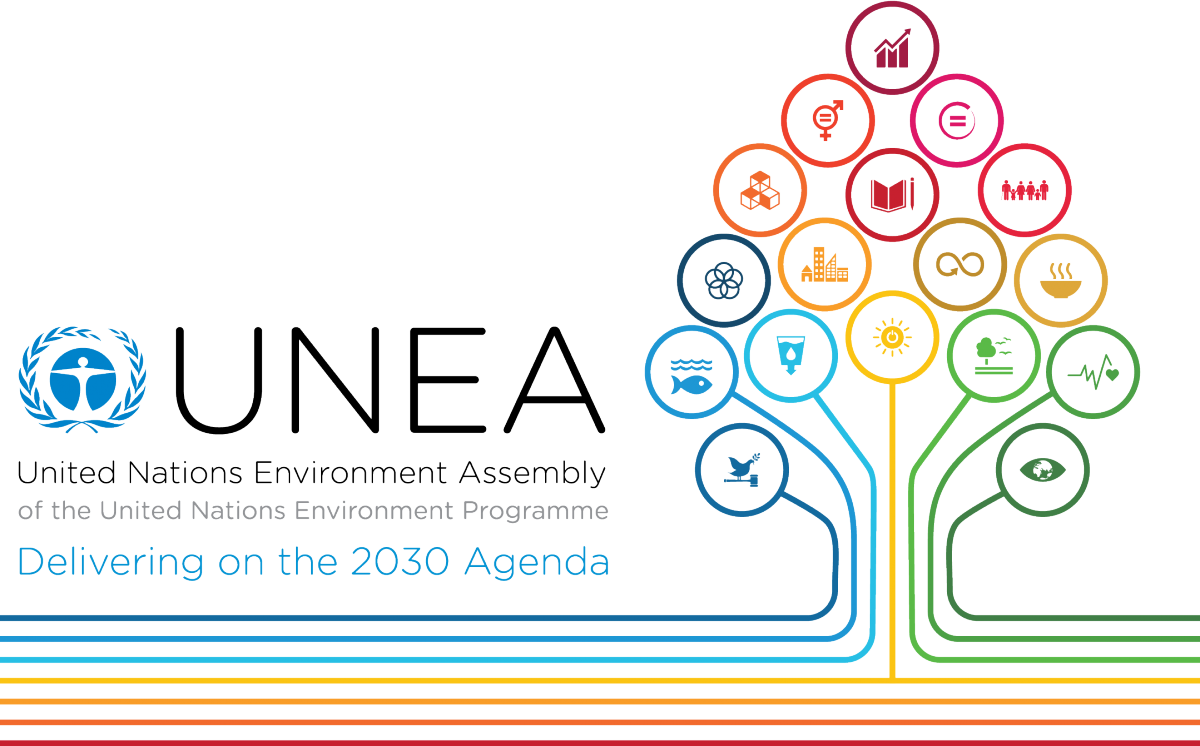
25 Landmark Resolutions to Drive Sustainability Agenda and Paris Climate Agreement at UN Environment Assembly
NAIROBI, Kenya, 27 May 2016 / PRN Africa / — The world’s environment ministers, gathered at the second session of the United Nations Environment Assembly (UNEA-2) in Nairobi on late Friday, passed far reaching decisions on issues such as marine litter, the illegal trade in wildlife, air pollution, chemicals and waste, and sustainable consumption and production – which are an integral part of the global action needed to implement the 2030 Agenda for Sustainable Development and the Paris Climate Agreement.
UNEP Executive Director Achim Steiner said, “The environment has always been, and will always be, at the heart of humanity’s prosperity. World nations recognized this in 2015 with global accords, such as the 2030 Agenda, the Paris Agreement, the Sendai Framework on Disaster Risk Reduction and the Addis Ababa Action Agenda.
“What we have seen in the last five days is the same political will and passion for change that brought about the groundbreaking international agreements of 2015. With global consensus affirmed, we are taking steps to bring about a real transformation of our development models. The United Nations Environment Assembly is providing leadership and guidance the world needs to take these unprecedented steps.
“In the decisions made here at this assembly for the environment, we see a significant directional shift that will inform Ministers’ decisions in their home countries. We will now need to see the bold and decisive commitment observed at UNEA transmitted at the national level to drive forward the 2030 Agenda and ensure a brighter future for people and planet.”
Thousands of delegates from 174 countries, 120 at the ministerial level, took part in UNEA-2 and associated side events on issues of global importance, including the Sustainable Innovation Expo and the Science-Policy Forum.
UNEA-2 sessions were attended by UN Deputy Secretary General Jan Eliasson; the President of the Republic of Kenya, H.E. Uhuru Kenyatta; UN Habitat Executive Director Joan Clos; and Vice-President of Iran and Minister of Environment Masoumeh Ebtekar. The sessions were presided over by Costa Rica’s Minister of Environment Edgar Gutiérrez, who took over from Oyun Sanjaasuren, former Minister of Environment and Green Development for Mongolia.
Among the 25 resolutions and actions decided at UNEA-2, the theme of which was “Delivering on the 2030 Agenda for Sustainable Development”, the following themes dominated:
2030 Agenda and Paris Agreement Implementation
The main theme of UNEA-2, Delivering on the 2030 Agenda, was a particular focus. The implementation of the work to achieve the Sustainable Development Goals (SDGs) will be a primary undertaking of the UN system, and the Assembly showed their full understanding of this.
UNEA asked UNEP to initiate new partnerships and strengthen existing ones, including with the private sector and civil society.
Building on its work in sustainable finance with the UNEP Inquiry into the Design of a Sustainable Financial System and the UNEP Finance Initiative, member states also asked UNEP to continue to build on its work at the intersection of finance and the environment.
With the Paris Agreement one the most significant environmental agreements in recent decades, UNEA also agreed that UNEP should accelerate support to countries, especially developing countries, to build national readiness capacity to implement the Agreement, build implementation capacity and capacity to access finance and technology.
Illegal Trade in Wildlife
A key issue at UNEA-2 was the illegal trade in wildlife, which is pushing species to the brink of extinction, robbing countries of their natural heritage and profiting international criminal networks.
UNEA-2 passed a resolution building upon previous commitments made at the first UNEA and General Assembly resolution 69/134, urging Member States to take further steps at the national level and through regional and international cooperation to prevent, combat and eradicate the supply, transit and demand related to the illegal trade in wildlife and wildlife products.
This includes implementing strategies and action plans, strengthening governance systems on issues such as anti-corruption and anti-money-laundering, supporting the International Consortium on Combating Wildlife Crime and the African Elephant Fund, and developing sustainable and alternative livelihoods for communities affected by the illegal trade in wildlife and its adverse impacts.
UNEP and partners – with the backing of celebrities such as Gisele Bündchen, Neymar Jr. and many others – also launched a new campaign, Wild For Life, to engage millions of members of the public to end the illegal trade in wildlife. Angola, which is hosting World Environment Day on 5 June, will make new commitments to combat the trade, particularly in ivory.
Marine Litter and Debris
It is estimated that there are 5.2 trillion pieces of plastic floating in our oceans, harming both the marine environment and biodiversity. To address this problem, member states resolved to encourage product manufacturers and others to consider the lifecycle environmental impacts of products containing microbeads and compostable polymers, including possible downstream impacts.
Delegates also sought the assistance of UNEP to assess the effectiveness of governance strategies and approaches to combat marine plastic litter and microplastics, and identify how to address gaps. They asked UNEP to help develop and implement national and regional action plans to target marine litter, with emphasis on those regions that are the largest sources.
Healthy Environment, Healthy People
World Health Organization estimates show that an estimated 12.6 million deaths are attributable to environmental factors each year, highlighting the importance of a healthy environment to healthy people. Several resolutions related to human health and the environment were passed. The resolution on sound management of chemicals and waste targeted actions on chemicals such as lead – exposure to which claimed an estimated 654,000 lives in 2010 and causes developmental damage to young children.
Delegates called on UNEP to develop research on actions that could be adopted to implement the Sustainable Development Goals (SDGs) relevant to the issue; asked the private sector to play a bigger role in an integrated approach to the sound management of chemicals and waste; and requested nations to ensure better recycling of lead-acid batteries at national or regional facilities.
Another resolution called on UNEP to establish a global research network on the threat posed by sand and dust storms and integrate the issue into its work. Sand and dust storms contribute to lowered air quality – a worldwide problem that claims seven million lives each year.
Other resolutions
Armed conflict and its relation to the environment was also a significant source of discussion at UNEA-2. A symposium focused on environment and displacement : root causes and implecations.
One decision called on Member States to take appropriate measures to ensure compliance with international obligations under international humanitarian law in relation to the protection of the environment in times of armed conflict.
Resolutions on food waste and sustainable consumption and production, which both impacts on the 2030 Agenda and Paris Agreement in terms of increasing emissions and resource use and holding back efforts to reduce hunger, were passed. The resolution called for increased efforts and cooperation to decrease the one third of all food produced each year that is lost or wasted and committed Member States to achieving SDG 12, which focuses on Sustainable Consumption and Production.
SOURCE United Nations Environment Programme (UNEP)
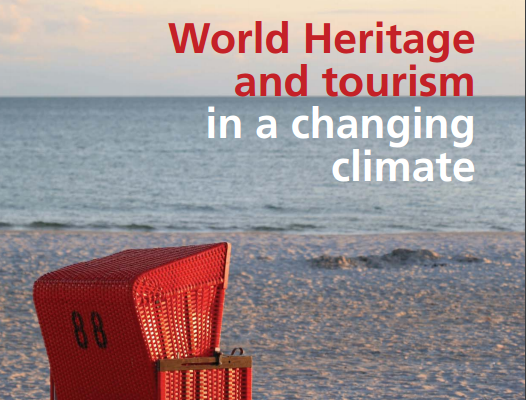
World Heritage sites at risk from climate change – joint UN report
NEW YORK, 27 May 2016 / PRN Africa / — Some 31 natural and cultural World Heritage sites in 29 countries across the world are becoming increasingly vulnerable to the effects of climate change, a new report released by the United Nations has found.
The World Heritage and Tourism in a Changing Climate report documents climate impacts including increasing temperatures, melting glaciers, rising seas, intensifying weather events, worsening droughts and longer wildfire seasons, at iconic tourism sites such as Venice, Stonehenge and the Galapagos Islands.
It also covers other World Heritage sites such as South Africa’s Cape Floral Kingdom; the port city of Cartagena, Colombia; and Shiretoko National Park in Japan, the UN Environment Programme (UNEP) said in a press release.
“World governments, the private sector and tourists all need to coordinate their efforts to reduce carbon emissions and to protect the world’s most treasured cultural and natural resources from the impact of tourism activities,” said Elisa Tonda, head of UNEP’s Responsible Industry and Value Chains Unit.
“Policies to decouple tourism from natural resource impacts, carbon emissions and environmental harm will engage a responsible private sector and promote change in tourists’ behaviour to realize the sectors’ potential in some of the world’s most visited places,” she added.
In addition to UNEP, the report was prepared by the UN Educational, Scientific and Cultural Organization (UNESCO) and the Union of Concerned Scientists (UCS).
Because World Heritage sites must have ‘Outstanding Universal Value,’ the report recommends that the World Heritage Committee consider the risk of prospective sites becoming degraded by climate change before they add them to the list.
In particular, the report highlights the urgent need to identify the World Heritage sites that are most vulnerable to climate change, and to implement policies and provide resources to increase resilience at those sites.
In addition, the report urges increased global efforts to meet the Paris Agreementclimate change pledges in order to preserve World Heritage sites for future generations.
“Globally, we need to better understand, monitor and address climate change threats to World Heritage sites,” said Mechtild Rössler, Director of UNESCO’s World Heritage Centre. “As the report’s findings underscore, achieving the Paris Agreement’s goal of limiting global temperature rise to a level well below 2 degrees Celsius is vitally important to protecting our World Heritage for current and future generations.”
The report also recommends engaging the tourism sector in efforts to manage and protect vulnerable sites in the face of climate change, and to educate visitors about climate threats.
“Climate change is affecting World Heritage sites across the globe,” said Adam Markham, lead author of the report and Deputy Director of the Climate and Energy Program at UCS.
“Some Easter Island statues are at risk of being lost to the sea because of coastal erosion. Many of the world’s most important coral reefs, including in the islands of New Caledonia in the western Pacific, have suffered unprecedented coral bleaching linked to climate change this year. Climate change could eventually even cause some World Heritage sites to lose their status,” he added.
The report includes a complete list of World Heritage sites that are at risk.
SOURCE UN News Centre

Zimbabwe Tourism in Remarkable Recovery: Dr Walter Mzembi
Zimbabwe’s tourism is now leading in sectoral growth with 11 percent contribution to Gross Domestic Product, displaying remarkable recovery, says Dr Mzembi, the Minister of Tourism and Hospitality Industry and Hospitality Industry of Zimbabwe, and Southern African Development Community endorsed candidate for the position of UNWTO Secretary General that falls vacant in 2017.
Minister Mzembi said the tourism industry was expected to play a major role in Zimbabwe’s economy, with a vision to have a $5 billion tourism boom from five million arrivals, contributing 15 percent to GDP by 2020.
“So, tourism has been the most significant rapprochement and re-engagement tool for the Republic of Zimbabwe and it is now an acknowledged unifying force and a tool for public diplomacy and the economy has largely been stabilised by its receipts income, securing peace in the process,” he said.
“Anything in a Government that is economically significant is enabled, facilitated and protected. We advanced tourism in Zimbabwe to a point where it is now a recognised economic pillar amongst three other pillars that include agriculture, mining and manufacturing,” said Minister Mzembi.
“In fact, it is cross-subsidising the Zimbabwean economy and GDP contribution now stands at 11 percent. We were able to advance to that point of recognition and it means that the whole Government works for the sector’s advancement. It starts with the security sector guaranteeing peace because peace is a critical success factor,” he said.
Minister Mzembi said Zimbabwe’s major product was peace as “it does not matter how attractive a destination is, if it is situated in a conflict situation it doesn’t sell. Tourism cannot sell conflict.”
He said the re-engagement and rapprochement carried out by the Government had resulted in the growth of the tourism sector. “Going forward, it (tourism sector) is paying the bills for Government functions. Meanwhile, the world has significantly softened its stance towards Zimbabwe, with European Union sanctions partially lifted and there is intense business reconnaissance missions into Zimbabwe and China would attest to this,” said Dr Mzembi.
“When State diplomacy fails, even without guns being fired at times, it can invent conditions equivalent to those of a war zone. We must never allow a situation where after traditional diplomacy fails, it precipitates war before we invoke the inherent diplomatic characteristics of tourism,” he said.
“When people arrive in destinations, they are agents of goodwill. Usually they bring an olive branch, so today’s 1,2 billion world arrivals can easily be turned into peace ambassadors of this world. The expenditure that they generate in destinations creates tourism economies which today stands at $1,4 trillion.”
Minister Mzembi chronicled how after the formation of the Government of National Unity in 2009, he was tasked with reaching out to the country’s traditional tourist source markets which had issued travel advisories against Zimbabwe.
The culmination of the efforts was the regularization of the country’s membership to world tourism bodies, with the ultimate being the country’s joint hosting by Zimbabwe and Zambia, the 20th Session of the General Assembly of the United Nations World Tourism Organization in Victoria Falls in 2013. The versatile Minister, Dr Wlater Mzembi was at the forefront of organizing one of the most successful General Assembly that was confirmed by Dr Taleb Rifai, the current Secretary General of UNWTO.
In the same vein, Dr Mzembi has demonstrated clear leadership of the tourism sector not only in his country, but globally, and he has shown that he has the gravitas to provide leadership of the tourism sector effectively. He is in the race for the UNWTO Secretary General position that falls vacant in 2017, and he has pronounced himself and answered to the cal by several countries for him to lead the tourism body. He has declared his candidature, with support also coming from the Southern African Development Community (SADC) and soon the African Union is likely to endorse him at the forthcoming African Union (AU) Heads of States and Government Summit to be held in July 2016 in Kigali, Rwanda as the AU candidate for the position. A cursory look at his maneuvering appears clearly that he is the most preferred candidate, a man that the world can trust, a man that the international tourism community can support to lead the UNWTO to drive a global agenda and consolidate on the legendary legacy to be left by Dr Taleb Rifai on one of the most dynamic and fast growing economic sectors in the world.
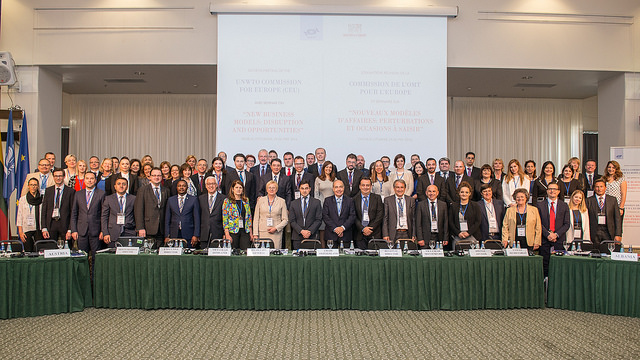
UNWTO Europe Meeting discusses digitalization and new business models
Vilnius, the capital city of Lithuania, this week hosted representatives of 34 countries for the 60th Meeting of the UNWTO Commission for Europe. Discussions focused on major tourism trends and the priorities and agenda of the Organization for the region. The meeting was followed by a seminar on new business models.
“In 2015, there were 29 million more international tourists in Europe than the previous year, raising the total in the region to 609 million. At a time when economic recovery is still quite slow, tourism has been a major contributor to the European economy, generating 404 billion euros in exports,” said UNWTO Secretary-General Taleb Rifai opening the meeting.
“Although the sector continues to progress, many challenges face us. These include a rapidly changing consumer market, the impact of technology, the emergence of new business models, manmade and natural crises, and the quest to make our sector more sustainable and more responsible,” he added.
“Tourism in Lithuania has large growth potential and after this event we have even more stimulus to keep promoting our country and look for new possibilities to support tourism,” said Evaldas Gustas, Minister of Economy of Lithuania and Vice-Chair of the UNWTO Commission for Europe.
Safe, secure and seamless travel, the role of tourism in the Sustainable Development Goals (SDGs) and the International Year of Sustainable Tourism for Development in 2017 were discussed at the Commission meeting.
The following seminar explored the impacts of new business models, and in particular of the so-called ‘sharing economy’, on the tourism sector, and how ‘traditional’ businesses are responding. Speakers included BeMyGuest, the Lithuanian Hotels and Restaurants Association, Room Mate Hotels, TripAdvisor, ReviewPro, HOTREC, NBTC Holland Marketing, the European Commission, the Tourism Chamber of the Republic of Lithuania and Airbnb. Participants agreed that the opportunities afforded by new business models should be embraced but that measures should be taken to ensure both a level playing field and the protection of consumers.
On the occasion of his visit to Lithuania, UNWTO Secretary-General Taleb Rifai met Lithuanian private sector representatives and the Chamber of Commerce. “Sustainable measures and other tourism policies should be applicable to all business models, so that all stakeholders across the value chain hold the same level of responsibility with regard to the sector,” said Mr Rifai. “Only by working in cooperation and by building bridges will the tourism community be able to capitalize on the strong potential of the sector,” he added.
In 2015, Europe remains the world’s most visited region with 609 million international tourist arrivals (51% of the world’s total). International tourism generated 404 billion euros in exports, 3% more than in 2014.
